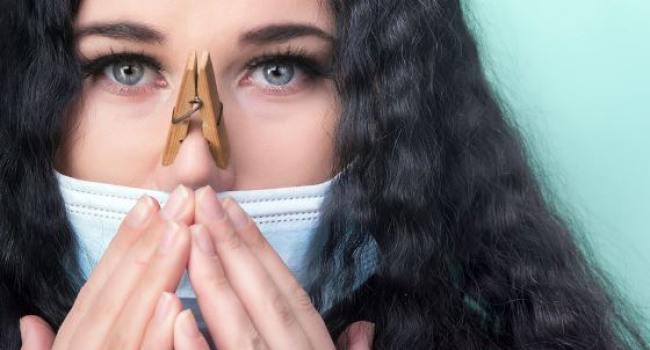- Latest news▼
-
18:15, May 4 What role does diet plays in the treatment of bipolar disorder?

-
10:52, May 4 Scientists identified dangerous health effects for families with gas cookers in their homes

-
12:36, May 3 Smoking during pregnancy may lead to obese children, study finds

-
10:29, May 3 Scientists discover cell responsible for repairing damaged liver tissue

-
20:17, May 2 NBR: low to moderate intensity exercise protects against depression

-
18:28, May 2 Sixth Armenian International Ophthalmological Conference will be held on 17-19 May

-
16:11, May 2 ВJN: High-fat foods may increase the risk of heart attack and stroke at a young age

-
14:16, May 2 Patterns: Neural network created that models outcome of various patient therapy methods

-
12:05, May 2 Armenia joins Council of Europe convention on protection of patients' rights

-
14:27, May 1 Journal of Neuroscience: Sluggishness of the elderly is due to greater use of calories, research finds

-
10:26, May 1 AstraZeneca admits its Covid vaccine can cause thrombosis

-
19:31, April 30 Scientists calculated how much time per day you should be sitting, standing and sleeping

-
17:37, April 30 The Conversation: Keeping bread in the fridge improves its health benefits

-
14:30, April 30 Frontiers in Molecular Biosciences: Researchers use AI to identify 191 new destructive viruses

-
08:38, April 30 The Guardian: First personalized cancer vaccine developed

All materials
New treatment restores sense of smell in some people with long COVID

A novel treatment could restore a normal sense of smell and taste in people with long COVID who have not responded to other therapies, a new study suggests.
Alterations or outright loss of taste and smell are common COVID-19 symptoms, affecting about half of everyone who gets the novel coronavirus. Most of the time, these symptoms clearTrusted Source after four weeks, but for some people it takes months.
And for some people with long COVID, distortions in the sense of smell and taste — called phantosmia and parosmia, respectively — related to COVID-19 can last far longer.
In these people, while the condition is non-life-threatening, experts say their quality of life suffers.
In the new research, which is being presented at the annual meeting of the Radiological Society of North America, doctors targeted a cluster of nerves in the neck called the stellate ganglion.
The treatment involves delivering a block to the stellate ganglion — aptly called a “stellate ganglion block”Trusted Source — which involves injecting anesthetic into the nerve cluster in order to stimulate the autonomic nervous system.
It’s a technique that has been used to attempt to treat post-traumatic stress disorder (PTSD), cluster headaches, and certain rare diseases, but this is the first time it has been used to attempt to treat long COVID symptoms in a study setting.
The study consisted of a group of 54 people who had been resistant to pharmaceutical and other traditional medical treatments for parosmia.
Of those, researchers followed up with 37 participants, 22 of whom reported improved symptoms a week after treatment. In addition, most of these participants reported significant additional improvement a month after treatment.
Three months later, researchers reported that there was an average 49% improvement in these symptoms among the group. In addition, 86% of this same group who responded to the first injection had additional improvements after a second injection administered to the other side of the neck after six weeks.
Those who did not respond to the first round of injection also did not respond to the second, however. Meaning this isn’t a cure-all.
These findings have not been published yet in a peer-reviewed journal.
Follow NEWS.am Medicine on Facebook and Twitter
- Related News
- Researchers find microplastic particles in human placenta When the study results were sorted by plastic found…
- Journal of Biophotonics: Red light photobiomodulation lowers blood sugar levels, study finds Red light with a wavelength of 670 nanometers activates the processing of glucose in the body…
- Researchers use genetic engineering to give hearing to deaf kids Five children of preschool age, who suffered from congenital deafness due to a hereditary disease...
- Scientists have discovered an unexpected treatment for depression This led Dr. Mason and her team to explore the potential link between depression and elevated body temperature...
- Social withdrawal in children, teens may signal higher risk of suicide later in life - study The study found that participants who experienced social withdrawal and somatic symptoms between the ages of 10 and 12 were about two to three times more likely to have suicidal thoughts at age 16...
- Video
- Event calendar
- Archive
- Most read
month
week
day
- AstraZeneca admits its Covid vaccine can cause thrombosis 1346
- 3 women diagnosed with HIV for first time after getting ‘beauty injections’ in US 1292
- Scientists calculated how much time per day you should be sitting, standing and sleeping 1289
- The Conversation: Keeping bread in the fridge improves its health benefits 1284
- The Guardian: First personalized cancer vaccine developed 1205
- In 64% of COVID-19 survivors, the condition worsens after one year 1172
- Journal of Neuroscience: Sluggishness of the elderly is due to greater use of calories, research finds 1127
- Sixth Armenian International Ophthalmological Conference will be held on 17-19 May 1123
- Ketodiet improved the condition of patients with schizophrenia and bipolar disorder 1051
- Frontiers in Molecular Biosciences: Researchers use AI to identify 191 new destructive viruses 1045
- 362 cases of measles recorded in Armenia so far in 2024 969
- NBR: low to moderate intensity exercise protects against depression 943
- ВJN: High-fat foods may increase the risk of heart attack and stroke at a young age 942
- Armenia joins Council of Europe convention on protection of patients' rights 941
- ECU: body tilt in patients after stroke was found to be curable 919
- Find us on Facebook
- Poll





